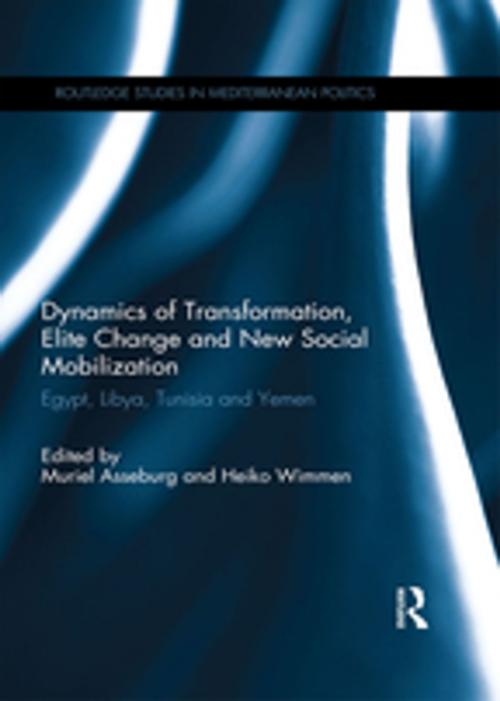Dynamics of Transformation, Elite Change and New Social Mobilization
Egypt, Libya, Tunisia and Yemen
Nonfiction, Social & Cultural Studies, Political Science, Government, Civics, Politics, Civil Rights| Author: | ISBN: | 9781317222514 | |
| Publisher: | Taylor and Francis | Publication: | February 2, 2018 |
| Imprint: | Routledge | Language: | English |
| Author: | |
| ISBN: | 9781317222514 |
| Publisher: | Taylor and Francis |
| Publication: | February 2, 2018 |
| Imprint: | Routledge |
| Language: | English |
The political transformations initiated by the so-called Arab Spring in Egypt, Libya, Tunisia and Yemen have been marked by strong political contention, continued social mobilization and, albeit to different degrees, weak central state institutions. This book proposes that, rather than agreed roadmaps of institutional change (e.g. elections, drawing up new constitutions) and centrally crafted transition processes, it has been the competition of key political actors for resources of political power and control that has set the pace and influenced the direction and depth of the transformation processes. Hence, the contributions in this volume use an actor-centred approach. Two perspectives are assumed: first key political actors – referring to the "Politically Relevant Elite (PRE)"– are identified and their motivations as well as their strategies and capacities to steer the transformation process. Secondly , the authors investigate the capacity of politically "Mobilized Publics" to exert influence on agenda setting and decision making, ask to what extent popular and social movements have emerged as political actors in their own right, and to what extent such forms of bottom-up participation have constituted a fundamental change to the political culture of these countries. Both avenues of inquiry analyze how the elites are constrained by continued social mobilization, how they engage with mobilized publics to promote their own agendas, and whether the extended scope of popular participation contributes to the legitimacy and stability of the emerging political orders, or causes disruption, fragmentation and conflict. This book was previously published as a special issue of Mediterranean Politics.
The political transformations initiated by the so-called Arab Spring in Egypt, Libya, Tunisia and Yemen have been marked by strong political contention, continued social mobilization and, albeit to different degrees, weak central state institutions. This book proposes that, rather than agreed roadmaps of institutional change (e.g. elections, drawing up new constitutions) and centrally crafted transition processes, it has been the competition of key political actors for resources of political power and control that has set the pace and influenced the direction and depth of the transformation processes. Hence, the contributions in this volume use an actor-centred approach. Two perspectives are assumed: first key political actors – referring to the "Politically Relevant Elite (PRE)"– are identified and their motivations as well as their strategies and capacities to steer the transformation process. Secondly , the authors investigate the capacity of politically "Mobilized Publics" to exert influence on agenda setting and decision making, ask to what extent popular and social movements have emerged as political actors in their own right, and to what extent such forms of bottom-up participation have constituted a fundamental change to the political culture of these countries. Both avenues of inquiry analyze how the elites are constrained by continued social mobilization, how they engage with mobilized publics to promote their own agendas, and whether the extended scope of popular participation contributes to the legitimacy and stability of the emerging political orders, or causes disruption, fragmentation and conflict. This book was previously published as a special issue of Mediterranean Politics.















